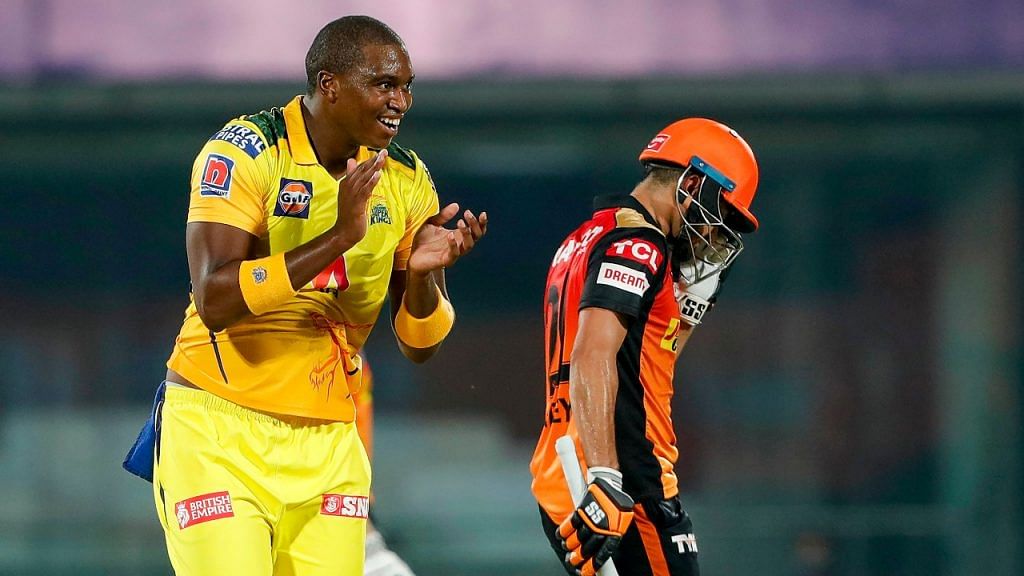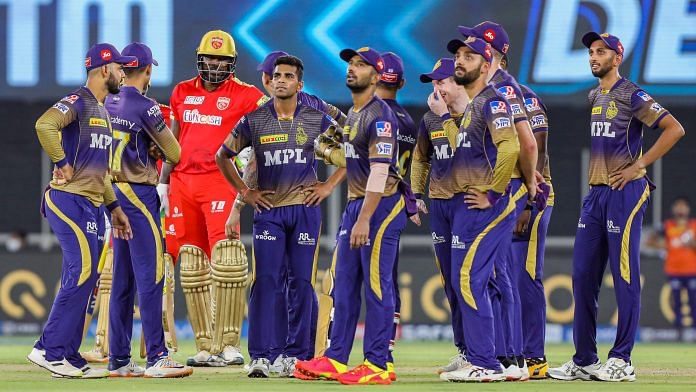If you happened to be anywhere near New Delhi’s Arun Jaitley Stadium, formerly known as Feroz Shah Kotla, this week, you’d think you were in an entirely different world — and not the Indian capital that is currently ravaged by the second wave of the Covid-19 pandemic. This is because the famous sports venue witnessed the hapless Sunrisers Hyderabad being swept aside by the Chennai Super Kings in the ongoing Indian Premier League series.
But it’s okay if your attention was elsewhere — on the city’s crumbling healthcare system perhaps. One of New Delhi’s biggest hospitals, the Lok Nayak Jai Prakash Narayan (LNJP), only received relief from oxygen shortage after it had been left with two hours of supply this week. Furthermore, three hospital staff died of Covid complications in the past few days alone.
Yet somehow, IPL has taken the ‘the show must go on’ memo very seriously. Amid the national capital’s worst-ever spike in Covid cases, the 2021 edition of India’s most lucrative sports event continues unabated in a bubble, in more ways than one.
Also read: IPL or Netflix, both are entertainment. Virtue signalling is anti-sport
Bursting the bubble
Despite their initial best efforts, the tournament’s chief organiser and broadcaster have not completely ignored the existence of a global pandemic. On 27 April, Star Sports put out a public service announcement (PSA) video on behalf of its core commentary team, calling on viewers to follow the usual Covid-safe protocols.
The PSA feels too-little-too-late though, as the tournament began 18 days earlier. The sheer contrast between the safety of the IPL bio-bubble and the dangers outside was quite apparent when the likes of cricketers such as Axar Patel, Devdutt Padikkal, Daniel Sams, along with Mumbai’s Wankhede Stadium groundstaff, tested positive in the days leading up to the tournament.
And that’s not all. Despite the high alert standards that the Board of Control for Cricket in India (BCCI) has put in place to ensure that the bio-bubble is not breached and the tournament is not compromised, the realities of the pandemic have continued to affect playing staff.
Rajasthan Royals’ backup overseas opener Liam Livingstone was the first to leave for non-injury reasons, citing “bubble fatigue”. Livingstone’s teammate Andrew Tye and Royal Challengers Bangalore’s bowlers Adam Zampa and Kane Richardson soon followed suit, citing the oft-used, nebulous “personal reasons”.
[ IPL Thread]
It used to be a massive thing when a player left a tour for personal reasons. Whether it be Michael Clarke in NZ to break up with Lara Bingle or Virat to support his wife at the birth of their child
— Fawadennis Alam (@DennisCricket_) April 26, 2021
Aside from the official statements issued by the BCCI and the IPL teams, Tye and Zampa did speak out about their anxieties regarding the pandemic situation outside the bubble, as well as the fear of being stranded due to the Australian government’s ban on flights coming from India.
Even if these players’ concerns can be dismissed due to the fact that they were simply bench players and were not on the kind of big contracts that availed the services of Chris Morris or Kyle Jamieson, one cannot ignore the departures of Delhi Capitals’ senior spinner R. Ashwin or of umpire Nitin Menon. Both Ashwin and Menon have departed the IPL bubble, citing Covid-19 concerns within their families.
There is still more than a month of this tournament to be played, in four Covid-ravaged cities (Ahmedabad, Delhi, Bengaluru, Kolkata), so it would be unsurprising to see more staff departures as the Covid wave continues and teams face early eliminations.

Also read: Moeen Ali drama to Beijing Olympics boycott, new challenge for sportsmen — call out bigotry
‘Benefits’ of IPL in a pandemic
Many on social media have vocally, and rightly, pointed out the operational costs of hosting IPL while its host city, Delhi, grapples with an overwhelmed healthcare system. It’s also just bad optics. Others, however, have tried to counter this narrative by listing the many advantages of the show carrying on. They claim the entertainment value gives millions of viewers something to look forward to, as well as an incentive to stay indoors, not break curfew rules, and make use of the many food services on matchdays offered by our gig economy.
Such counter-arguments often come from a place of privilege or from people who have not directly experienced personal tragedies caused by the pandemic. However, I’d be lying if I said I haven’t watched nearly every single minute of every match in the past 20 days and updated my fantasy IPL teams with a similar level of enthusiasm.
In fact, as I write this, I have been watching Yashasvi Jaiswal and Jos Buttler open the batting in their delightful Jaipur pink kits against the bowling of Trent Boult and Jasprit Bumrah. The thrill and the obsessive draw of live sport as a mental health respite is thus palpable.
However, since this T20 show is anyway held behind closed doors for the benefit of television viewers and die-hard fans such as myself, it begs the question as to why this year’s IPL was not also held in the UAE, given how successful the 2020 edition was there.
For that answer, turn to the BCCI. For all its great contributions to the advancement of Indian cricket over the years, mental health, safety, and optics appear to come second to its desire of returning the IPL to Indian shores as soon as possible.
Even before the 2020 IPL had concluded, BCCI chief Sourav Ganguly had earmarked an April-May start date for the 2021 IPL to be held in India, as well as the India-England series and the domestic season. While domestic tournaments passed without incident, the logistics involved in hosting an IPL with eight teams and overseas players from around the world are far greater.
And on the issue of players’ mental health, Ganguly made some questionable comments, implying that Indian players are mentally stronger than those from Australia, England, or the West Indies, who simply “give up.”
More recently, the BCCI pledged to the tournament’s remaining overseas players that they have “nothing to worry about” as the board would ensure safe journeys home for everyone. While reiterating the safety of the bubble, however, the BCCI also told the players that they are “playing for humanity.” This sounds like a bit of a stretch.
Such a message is a bit off-base, as I am struggling to understand how a potential century by Jos Buttler might reduce Delhi’s positivity rate, or how a possible 5-wicket haul from Kagiso Rabada would lessen the strain on Ahmedabad’s hospitals. And who made players in charge of humanity anyway?
Perhaps a more optics-sensitive, or just humane, BCCI would have focused on redistributing its IPL revenue to nationwide Covid relief efforts. Until then, the onus seems to be on players to follow the lead of Pat Cummins, who donated $50,000 to the PM Cares Fund for oxygen supply.
Views are personal.




The author, has spoken about optics, but nothing concrete about benefits of shutting down IPL or moving it oversees ? I don’t see how it would have benefited anyone if the IPL had not been conducted.
The article doesn’t suit on THE PRINT website page, it’s too shallow